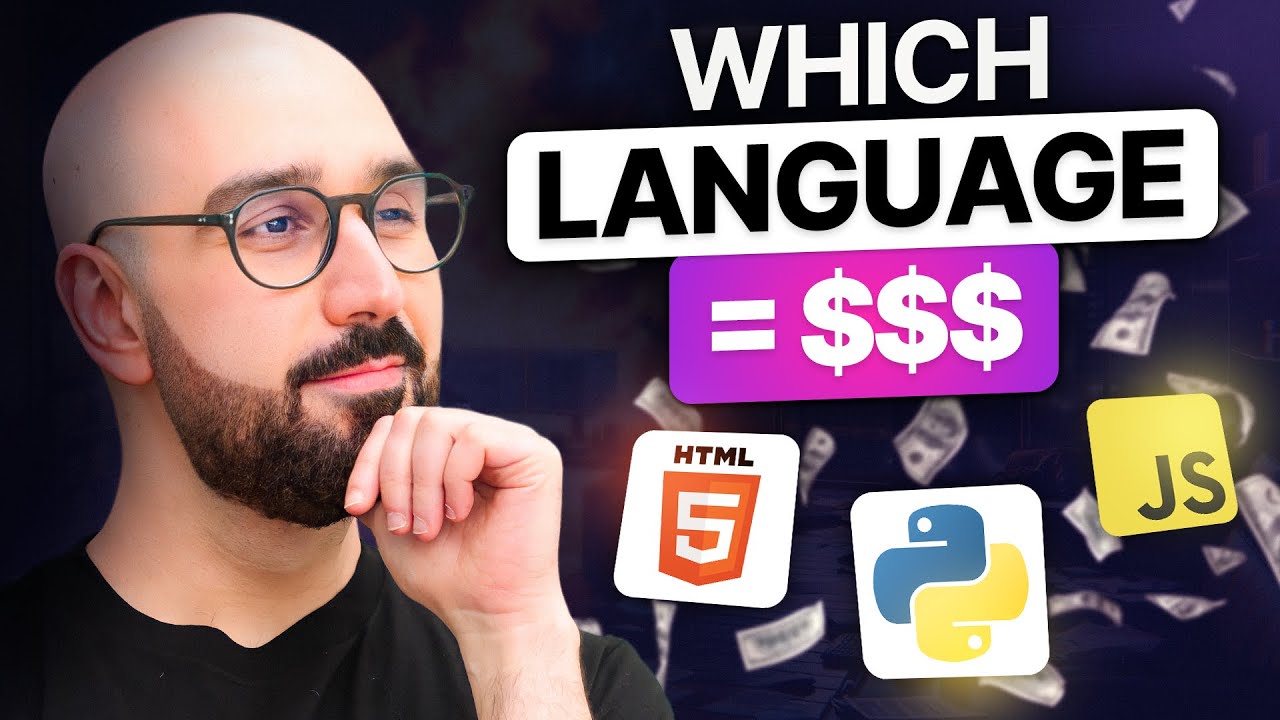
Feeling overwhelmed by the multitude of programming languages available today? You're not alone. Many beginners find themselves jumping between languages, making little progress and wondering which one will actually help them land their dream tech job. The good news is that choosing the right programming language becomes much simpler when you first identify your desired career path.

Before diving in, it's important to understand that simply learning a programming language isn't a guaranteed ticket to employment. Landing a tech job requires a combination of skills, with programming languages being just one component—albeit an essential first step. Let's explore different tech career paths and the languages that power them.
Web Development: Frontend, Backend, or Full Stack
Web development remains one of the most accessible and in-demand tech career paths. It's divided into two main areas: frontend and backend development.
Frontend Development
Frontend development focuses on everything users see and interact with in their browsers. The essential languages and technologies include:
- HTML: For structuring web page content
- CSS: For styling and making websites visually appealing
- JavaScript: For adding interactivity and dynamic features
Backend Development
Backend development handles the behind-the-scenes logic—servers, databases, and application functionality. Popular backend languages include:
- JavaScript (with Node.js): Allowing JavaScript to run on servers
- Python: Known for readability and versatility
- Java: Enterprise-grade performance and scalability
- PHP: Powers many content management systems
- C#: Microsoft's solution for web applications
An important advantage emerges here: if you learn JavaScript, you can use it for both frontend and backend development. This makes it an extremely versatile choice for beginners, as you can build complete web applications with just one language. When you can handle both frontend and backend development, you become a full stack developer—a role that typically commands higher salaries.
Mobile App Development: Native vs. Cross-Platform
If creating mobile applications excites you, you'll need to choose between native and cross-platform development approaches.
Native Mobile Development
Native development means building apps specifically for one platform:
- Android: Java (traditional) or Kotlin (modern favorite)
- iOS: Swift (current standard) or Objective-C (legacy projects)
Cross-Platform Development
Cross-platform frameworks allow you to write code once and deploy to multiple platforms:
- React Native: Uses JavaScript and reaches both Android and iOS
- Flutter: Uses Dart language and provides excellent performance across platforms
Again, JavaScript shows its versatility—if you've learned it for web development, you can leverage that knowledge for mobile development through React Native. Before choosing between React Native and Flutter, research job opportunities in your location to see which has higher demand.
Game Development: Bringing Interactive Experiences to Life
For aspiring game developers, the choice of programming language is closely tied to game engines—the software frameworks that provide the foundation for building games.
- Unity: Requires C# and is more beginner-friendly, perfect for indie developers and small to medium-sized studios
- Unreal Engine: Uses C++ and excels at creating visually stunning, large-scale games
Your choice between these two popular engines will determine which language to learn. Unity with C# offers a gentler learning curve, while Unreal Engine with C++ provides more power but with steeper complexity.
Embedded Systems: Software for Physical Devices
Embedded systems development involves creating software that controls physical objects—from smart watches and appliances to self-driving cars and medical devices. This specialized field requires languages that can interact directly with hardware:
- C/C++: The traditional choices that provide maximum control over hardware
- Rust: A newer language focused on memory safety and performance, gaining popularity for critical systems

AI and Machine Learning: Shaping the Future of Technology
Artificial intelligence and machine learning represent one of the fastest-growing fields in technology. If you're drawn to creating intelligent systems that can learn and adapt, consider these languages:
- Python: The undisputed leader for AI and machine learning, with extensive libraries like TensorFlow, PyTorch, and scikit-learn
- R: Specialized for statistical computing and data visualization, popular in research and data science
Python's readability and the wealth of machine learning libraries available make it the clear first choice for most AI developers.
Making Your Decision: Factors to Consider
When deciding which programming language to learn first, consider these factors:
- Your career goals and interests: Which tech field genuinely excites you?
- Job market demand: Research which languages are most requested in job listings in your area
- Learning curve: Some languages are more beginner-friendly than others
- Versatility: Languages like JavaScript can be used across multiple domains
- Community support: Larger communities mean more learning resources and help when you get stuck
Remember that your first programming language is just that—your first. Many developers become proficient in multiple languages throughout their careers. The most important step is to choose one and start learning deeply rather than jumping between languages.

Conclusion: Start Your Programming Journey Today
The best programming language to learn is ultimately the one that aligns with your career goals and interests. If you're still unsure, JavaScript offers exceptional versatility across web, mobile, and even backend development, making it an excellent first choice for many beginners. Python is another strong contender with its readable syntax and applications ranging from web development to AI.
Whichever language you choose, commit to it long enough to build real projects and develop proficiency. The skills you gain with your first language will make learning additional languages much easier in the future. The most important step is to start coding today and begin building the foundation for your tech career.
Let's Watch!
Best Programming Languages to Learn for High-Paying Tech Jobs
Ready to enhance your neural network?
Access our quantum knowledge cores and upgrade your programming abilities.
Initialize Training Sequence